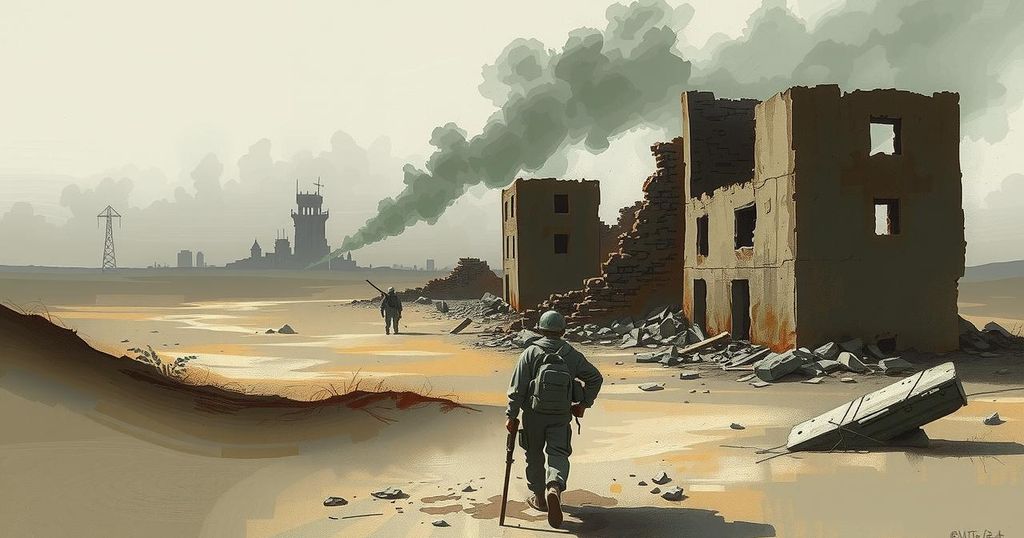An airstrike by South Sudan’s airforce in Nasir killed at least 19 people shortly after government forces withdrew due to ethnic militia clashes. Accusations of political collusion arise as the civil conflict threatens to reignite. Local hospitals treated casualties of the strike, and the involvement of Ugandan troops was also noted.
On March 7, an airstrike conducted by South Sudan’s airforce resulted in the deaths of at least 19 individuals in the eastern town of Nasir, as reported by local residents. This incident occurred shortly after government forces retreated from the area amid escalating confrontations with an ethnic militia known as the White Army. The clashes raised concerns of reigniting the civil war that occurred from 2013 to 2018, which caused countless fatalities.
The South Sudanese government has accused the political faction led by First Vice President Riek Machar, a member of the Nuer ethnic group, of colluding with the White Army. This group had previously allied with Machar’s forces against the Dinka troops loyal to President Salva Kiir during the civil conflict, although Machar’s political faction has denied these allegations.
In recent altercations, a UN helicopter came under fire while attempting to evacuate soldiers from Nasir, resulting in the deaths of approximately 27 soldiers, including a South Sudanese general. Michael Makuei, South Sudan’s Information Minister, mentioned that the airforce conducted the bombing of Nasir on Monday morning, while community leader Kang Wan noted that the airstrike had taken place late on Sunday night.
According to Wan, out of the 19 deceased, 15 individuals were killed immediately, and the others later succumbed to their injuries. Another local resident reported seeing 16 bodies at the scene. Medecins Sans Frontieres indicated that their hospital in Ulang treated three patients with severe injuries related to the airstrike, two of whom were declared dead upon arrival.
James Gatluak Lew, the commissioner of Nasir County and an ally of Machar, suggested that the armed forces of South Sudan might be retaliating for the recent helicopter attack. Additionally, Uganda had deployed special forces in South Sudan’s capital, Juba, purportedly for security reasons, although the South Sudanese government denied the presence of Ugandan troops. However, Makuei later acknowledged that some Ugandan army units were in South Sudan to assist the national army according to operational requirements.
In summary, the recent airstrike in Nasir, South Sudan, has resulted in the tragic loss of 19 lives, highlighting the ongoing tensions within the region following government troop withdrawals. The backdrop of historical ethnic conflict exacerbates the situation, with serious allegations of collusion between political factions and local militias. The involvement of foreign troops, notably from Uganda, adds further complexity to the security dynamics in South Sudan.
Original Source: www.canberratimes.com.au




